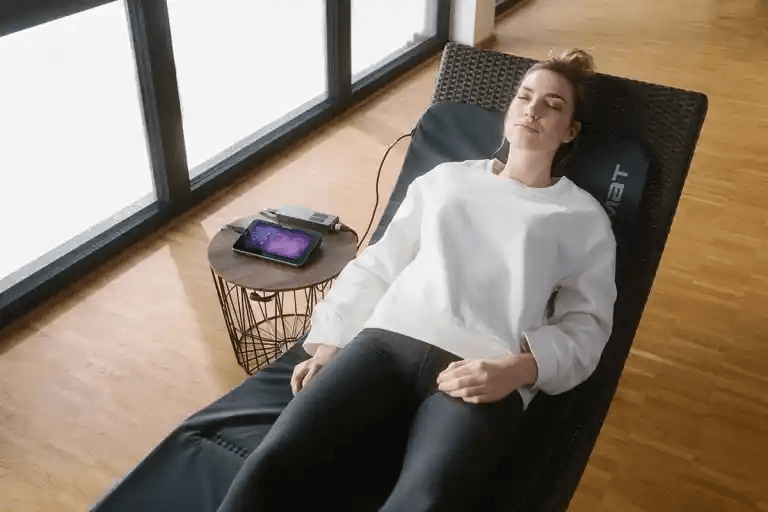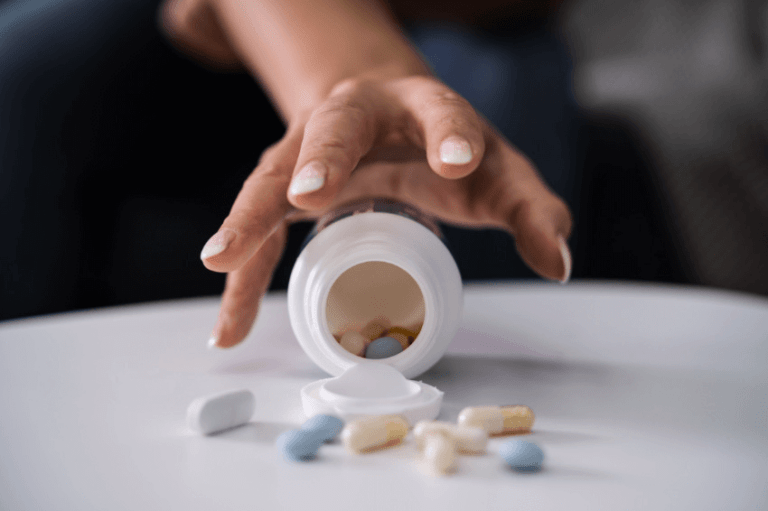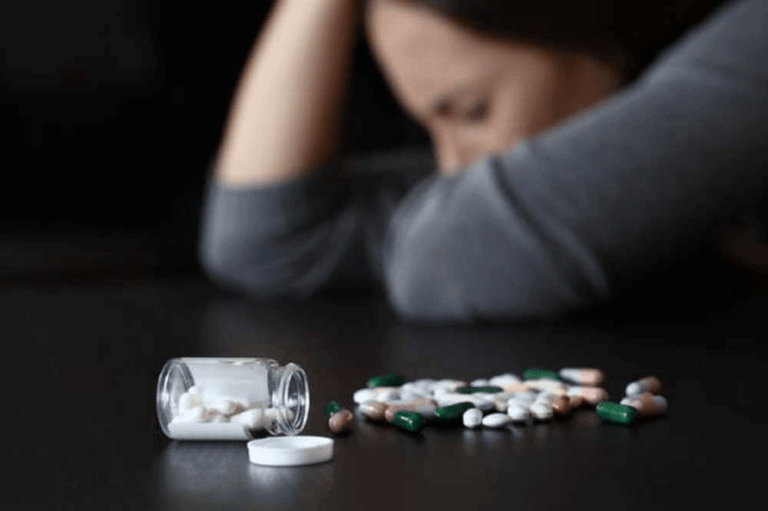Detox is the first step in the addiction recovery journey. Our detox center in Maryland can help.
However, it’s also the most challenging step to take. As you begin to experience uncomfortable withdrawal symptoms and cravings, maintaining sobriety on your own can be challenging.
At the Alpas Wellness detox center in Maryland, our addiction field specialists will be by your side every step of the way. We’ll help you recover in comfort and safety at our holistic drug and alcohol detox center, conveniently located less than two hours from Baltimore in serene La Plata, Maryland, while you focus on reaching your health and wellness goals. Detox is the best first step prior to entering a drug & alcohol rehab in Maryland.
What is Medical Detox?
A medical detoxification facility is a medically monitored inpatient treatment facility that provides 24-hour healthcare supervised by medical professionals. The American Society of Addiction Medicine (ASAM) defines this as the Level III 7-D level of care.[1]
Those suffering from drug or alcohol withdrawal symptoms receive primary medical and nursing care services based on individual care plans. Physicians are always available, and our RNs are always on-site to provide care as needed and monitor your health and progress.
Addiction treatment providers also offer medication-assisted treatment services on a case-by-case basis. This serves to alleviate withdrawal symptoms, reduce cravings, and offer a more comfortable detox experience.
Types of Drug and Alcohol Detox Available in Maryland
A medical detox program is a beneficial substance abuse treatment for any type of substance, whether illegal, illicit, or prescription. The following types of detox are available in Maryland:
Our Medical Detox
Process in Maryland
A medically-monitored detox treatment program offers a safe and supervised space for you or your loved one to navigate the symptoms of withdrawal and minimize physical harm. When admitted, you will be assigned an individualized residential treatment plan that considers your medical history, mental health, family history, and disorder severity.
Medical providers will provide essential healthcare by monitoring your blood pressure, heart rate, and withdrawal symptoms until you’ve reached the desired level of stabilization.
How (and Why) Drug Detoxification Works
The detoxification process is the clearing of harmful toxins (drugs, alcohol, painkillers, etc.) from the body for someone who has developed a dependence.[2]
As your brain adjusts back to natural chemical levels, there are many uncomfortable side effects including headaches, nausea, fatigue, irritability, and stomach cramps, among others. This is the first step to restoring the balance in your mind and body and creating a healthier you.
Side Effects of Medical Detox
Withdrawal Symptoms and Side Effects of Drug Detox
- Dysphoria
- Insomnia
- Anxiety
- Irritability
- Nausea
- Agitation
- Heart palpitations
- High blood pressure
Withdrawal Symptoms and Side Effects of Alcohol Detox
- Exhaustion
- Insomnia
- Hand tremors
- Nausea or vomiting
- Anxiety
- Agitation
- Seizures
- Delirium tremens (altered mental status) [4]
What’s the Best Way to Find a Detox Center in Maryland?
Looking for a safe and supportive detox center is often the first step in drug or alcohol treatment and recovery. To find a drug detox center that’s a good fit for you, try the following.
- Ask your doctor for a referral.
- Ask trusted friends and family where they recommend.
- Search for an inpatient detox through the Substance Abuse and Mental Health Services Administration (SAMHSA) database.
- Call the drug addiction helpline.
- Research treatment center accreditations
Find Medical Detox in Maryland Near Me
Facilities that specialize in substance use disorder treatment.
Click on a pin to learn more information on a specific facility location
-
00 01
The Dangers of Quitting Drugs Cold Turkey
 Call Us
Call UsSome of the more severe symptoms of withdrawal include anxiety, agitation, seizures, delirium tremens (altered mental status), heart palpitations (tachycardia), and high blood pressure (hypertension).
As you’re confronted with these symptoms, it may be difficult to maintain abstinence due to the pain and discomfort. In severe cases, these symptoms can be life-threatening and could lead to serious health issues.
-
00 02
Can You Detox from Drugs and Alcohol at Home?

For a mild substance use or alcohol use disorder, it may be possible to detox during outpatient or IOP (intensive outpatient) treatment or at home. However, due to the severity of some withdrawal symptoms, outpatient detox may not be safe.
An inpatient medical detox facility monitors your overall health and progress to ensure your safety and avoid the more serious side effects of detox and withdrawal that could be experienced if detoxing during outpatient treatment.
Detox is only the first step toward sober living. Additional support, therapy, and counseling are needed to develop strong coping skills and personal autonomy.
-
00 03
Cost of Medical Detox in Maryland

The cost of medical detox services will vary depending on each patient’s unique needs. Factors that may impact cost include the level of care required, the individual treatment plan if medically managed care is needed, co-occurring disorder treatment (also known as dual diagnosis), and eligibility for Medicaid, Medicare, or other health insurance plans.
Call the Alpas Wellness admissions team to learn more about payment options and verify coverage by your insurance provider.
-
00 04
Treatments Options and Therapies Related to Medical Detox

The detox process is the immediate level of care for those with a severe substance or alcohol use disorder who need additional care.
-
00 05
MAT Therapy or Medication-Assisted Treatment

Medication-assisted treatments can alleviate symptoms and reduce cravings to mitigate the risk of relapse.[5] Some medications include Suboxone® (for opioid withdrawal), methadone, buprenorphine, Vivitrol®, and naltrexone.
-
00 06
Drug Tapering

For some prescription medications, the physician will prescribe a drug tapering schedule. This reduces the dosage or frequency of a medication or substance allowing the body to gradually detox harmful toxins and reduce the severity of withdrawal.
-
00 07
Behavioral Health and Therapy

On its own, detox is insufficient to support lifelong recovery. It’s important to develop strong coping skills before fully reintegrating back into daily routines. Evidence-based therapy interventions include:
- Cognitive Behavioral Therapy (CBT)
- Dialectical Behavioral Therapy (DBT)
- Motivational Interviewing (MI)
- Motivational Enhancement Therapy (MET)
- Experiential Therapy
-
00 08
Substance-Specific Withdrawal Information
Frequently Asked Questions about Medical Detox in Maryland
How long do you detox your body?
In most cases, harmful toxins can be largely eliminated from the body within several hours or a day, but the residual effects can last much longer, sometimes weeks.
How can you tell if someone is detoxing?
Someone who is detoxing or experiencing withdrawal will exhibit some or all of the hallmark symptoms, such as insomnia, anxiety, irritability, nausea, seizures, altered mental status, high blood pressure, and heart palpitations.
How long does a detox program last?
For most patients, medical detox lasts approximately three days or until you’re stable enough to transfer to inpatient treatment. The average length of stay for more comprehensive treatment is 30 days.
Additional Medical Detox Resources
[1]Substance Abuse and Mental Health Services Administration (US); 2 settings, levels of care, and patient placement. (n.d.-a). Retrieved from https://www.ncbi.nlm.nih.gov/books/NBK64109/ on June 5, 2023
[2]Substance Abuse and Mental Health Services Administration (US); 1 overview, essential concepts, and definitions in detoxification. (n.d.-a). Retrieved from https://www.ncbi.nlm.nih.gov/books/NBK64119/ on June 5, 2023
[3]Kosten, T. R., & O’Connor, P. G. (n.d.). Management of Drug and Alcohol Withdrawal. University of Washington School of Medicine. Retrieved from https://depts.washington.edu/psychres/wordpress/wp-content/uploads/2017/07/100-Papers-in-Clinical-Psychiatry-Substance-Use-and-Addiction-Psychiatry-Management-of-drug-and-alcohol-withdrawal.pdf on June 5, 2023
[4]Bayard, M., Mcintyre, J., Hill, K. R., & Jack Woodside, J. (2004, March 15). Alcohol withdrawal syndrome. American Family Physician. Retrieved from https://www.aafp.org/pubs/afp/issues/2004/0315/p1443.html?simple=True on June 2, 2023
[5]Diaper, A. M., Law, F. D., & Melichar, J. K. (2014a, February). Pharmacological strategies for detoxification. British journal of clinical pharmacology. Retrieved from https://www.ncbi.nlm.nih.gov/pmc/articles/PMC4014033/ on June 5, 2023




